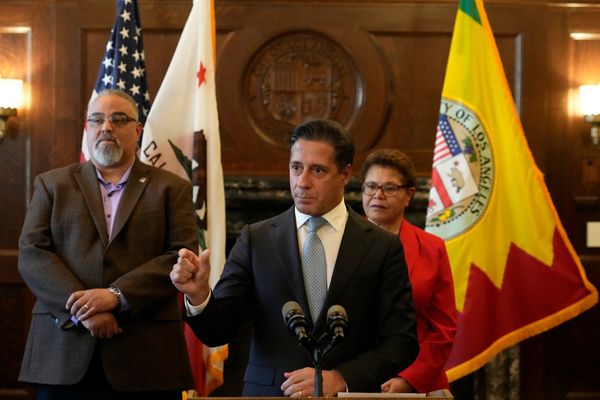
Analysts expect the incoming administration of President-elect Donald Trump will turn around the recent dealmaking slump in the M&A market.
After several years of reduced activity and blocked deals, watchers believe Trump’s second term in office will lead to a flurry of new deals. Trump campaigned on a business-friendly agenda that promised ample deregulation.
“The regulatory posture of the Federal Trade Commission and the Department of Justice Antitrust Division that during the past four years challenged many proposed business combinations will likely be more relaxed under the incoming administration,” Goldman Sachs chief U.S. equity strategist David Kostin wrote in an analyst note published Wednesday.
Goldman Sachs projects a 20% increase in M&A activity in 2025, according to the same note. Over the last couple of years, M&A activity had fallen significantly. Goldman estimates in 2024 it dropped 15% compared to the year prior.
President Joe Biden’s administration had been much harsher on mergers on the grounds that corporate consolidation would hurt consumers. Under FTC chair Lina Khan and assistant attorney general for the DOJ’s antitrust division Jonathan Kanter, regulators have been testing new parameters to evaluate whether they would approve certain mergers. Rather than look exclusively at whether a prospective deal would raise consumer prices, as was done in the past, Kanter and Khan considered the overall power two merged companies might wield on their industry. In essence, they more closely scrutinized a possible merger’s negative impact on suppliers and competitors as well.
Now, with Trump set to return to office for a second term, that scrutiny is expected to dissipate—a reality that was reflected in the stock market over the last two days.
The day after Trump’s election win over Vice President Kamala Harris, the stocks of several companies expected to pursue M&A deals rose on the expectation they might be completed.
Tapestry Inc, which owns luxury brands Coach and Kate Spade, saw its share price rise 5.5% over two days on the expectation that its merger with Capri Holdings, owner of Michael Kors, would get regulatory approval. Capri stock was up 10% since Tuesday’s close. In the airline sector, Frontier and Spirit both saw their stocks rise 11% and 15%, respectively, on the view that their previously scuttled merger might now be allowed.
The merger of Kroger and Albertsons, the two largest grocery chains in the country, also seems more likely now. That deal is currently tied up in court after the FTC sued to stop the two grocery chains from merging. Both Kroger and Albertsons stocks were up since Tuesday when it became apparent Trump would win the presidency.
The rallies in those stocks were taken as an indication that investors believe M&A activity will indeed go through. An expected lighter touch is a critical factor in M&A because it gives business leaders the impression their deals will indeed close.
“CEO confidence is a key variable affecting executives’ inclination to engage in M&A activity,” Kostin wrote in his note.
That said, even with a more favorable regulatory regime, valuations remain high, according to Goldman, though that would likely affect the nature of the deals themselves rather than their overall number. Goldman expects that because of high valuations, deals will feature share considerations over cash.
Wedbush tech analyst Dan Ives said he expected “valuation hubris” to come down among privately held tech firms as M&A dealmaking heats up under Trump. “A tidal wave of tech M&A and overall deal activity could now be on the horizon with Trump in the White House,” Ives wrote in an analyst note Wednesday.
But M&A deals are complex processes that depend on more than just regulators’ policy views. There’s no guarantee those alone will lead to a spate of new deals.
“In my view, M&A activity is highly dependent on the level of the stock market, as this boosts the purchasing power of any corporation with a high stock price, and especially the current mega-cap superstars,” BCA Research chief strategist Dhaval Joshi told Fortune.
Notably, not all M&A deals are between public companies. That is especially true in the tech industry, where startup founders often look to get acquired by bigger players. Under the Biden administration, some of these types of deals also drew the attention of regulators. In July 2022, the FTC sued to stop Meta’s acquisition of the startup Within, which makes virtual-reality fitness content, on the grounds it wanted to “buy its way to the top” rather than compete outright.
The Trump administration wouldn’t take such an approach, according to Chris Farmer, CEO of VC firm SignalFire. It would allow “incumbents to acquire upcoming startup competitors, which could unlock more billion-dollar exits for a limited set of founders and venture capitalists,” he said.
On the other hand, Farmer acknowledged there are certain downsides to too much deregulation, which could “give consumers less choice and box out unacquired startups from viably competing.”







